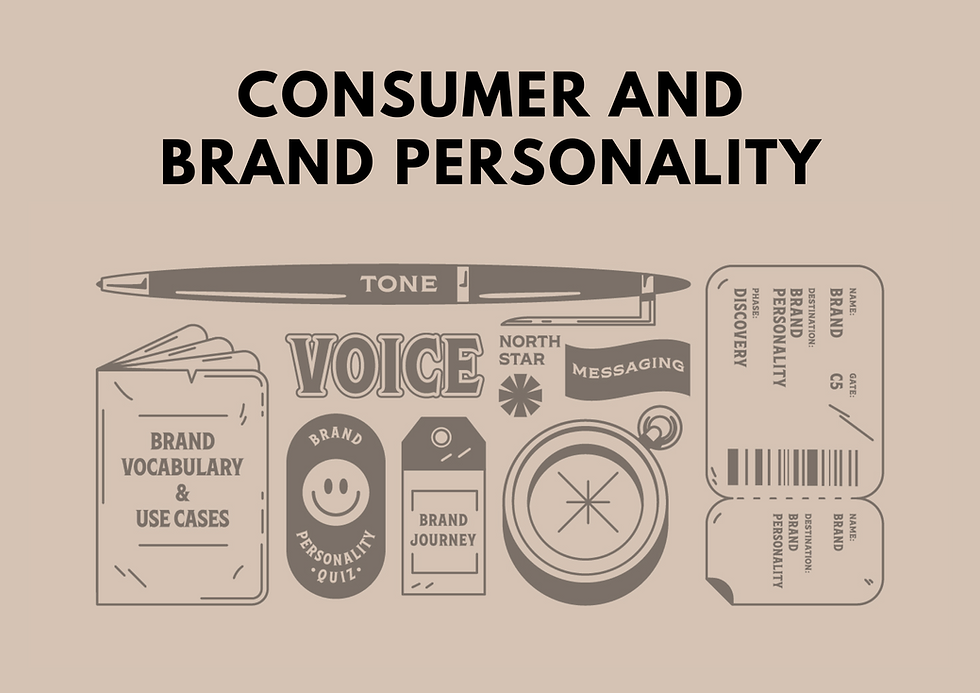Consumer and Brand Personality.
- Katie Brindle

- Apr 16, 2021
- 2 min read

A personality can be defined as the collection of characteristics that make a person unique, and which control an individuals responses and relationships with the external environment. It is the whole of the person and it is the system that governs behaviour rather than behaviour itself. There are a number of key features of personality as a whole: unique to each individual, responsible for peoples thoughts, feelings and behaviour; relatively stable across time and contexts, consistent and variated.
Personality can have a number of approaches, which are explained here:
Psychoanalysis: Human personality is shaped by the struggle between the competing demands of the conscious and unconscious mind. No longer a mainstream approach in consumer and marketing research.
Trait Theories: These suggest that personality is made up of a set of measurable characteristics known as traits. They are labels given to stable characteristics in which people differ from one another in consistent and permanent way. They are assumed to be universal and measurable.
Psychographics: Sometimes known as lifestyle studies, since it is concerned with people's values and approach to life. It classifies consumers on the basis of their values, attitudes and lifestyles. They offer a good tool for market segmentation. However, the necessary research is complex, time consuming and somehow subjective. The resulting consumer types may change across cultures or over time.
Now we’ve been able to understand more of personality as a concept, we can deliver more into how brands can create a personality that’s attractive to consumers: essentially, a brand personality is a set of human characteristics associated with that brand. It serves as a symbol or self-expressive function to consumers and the like. This is possible because consumers imbue a brand with human personality traits, despite the fact it isn’t inherently human.
From brand personality, we can introduce the congruency model and self-concept. Self-congruency touches on the alignment between a brand personality and a consumers. It suggests that individuals prefer brands who fall in line with their own self-concept, and who they deem themselves to be as a person. Research shows us that self-congruity with a brand has a positive influence on consumer behaviours such as attitude, preference, purchase motivation, satisfaction and loyalty.





Comments